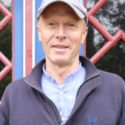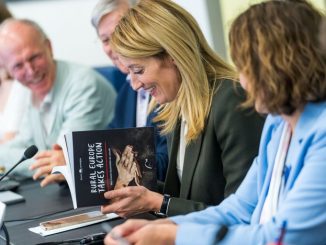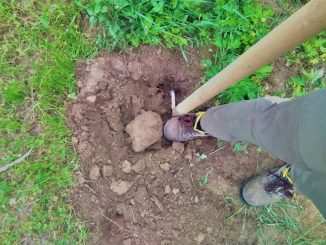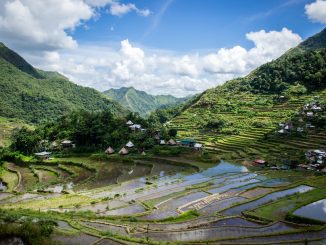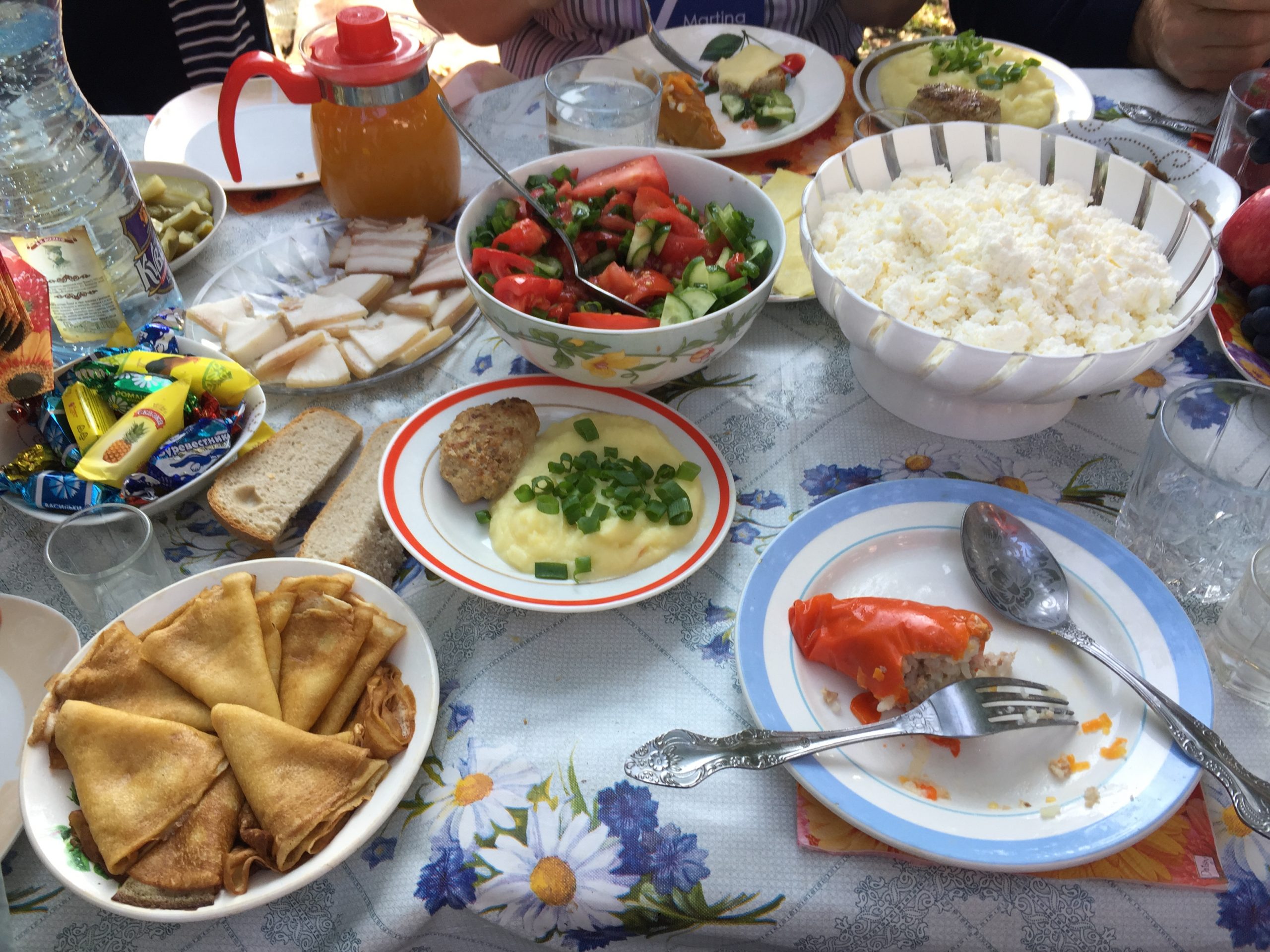
To kick off our new series on Russia, Hannes Lorenzen takes us to the tiny village of Kalinino, where he was overwhelmed by the local hospitality. Here, each family produces most of their own food on around 2000m² of land.
I felt like I was floating through a film, you remember Fellini? Almodovar? – you fall entirely out of time, not necessarily backwards into the past, nor into the future, you are suddenly just here – in a calm and beautiful garden, and fully present in this very moment. You sit down at a long table under fruit trees – I do not remember now if they were plums or apples. You look into curious eyes and glowing faces, and you see the hands that did the hard work. Our hosts felt the joy and pride of having guests from far away and of sharing the wealth and beauty grown and prepared on this, their land.
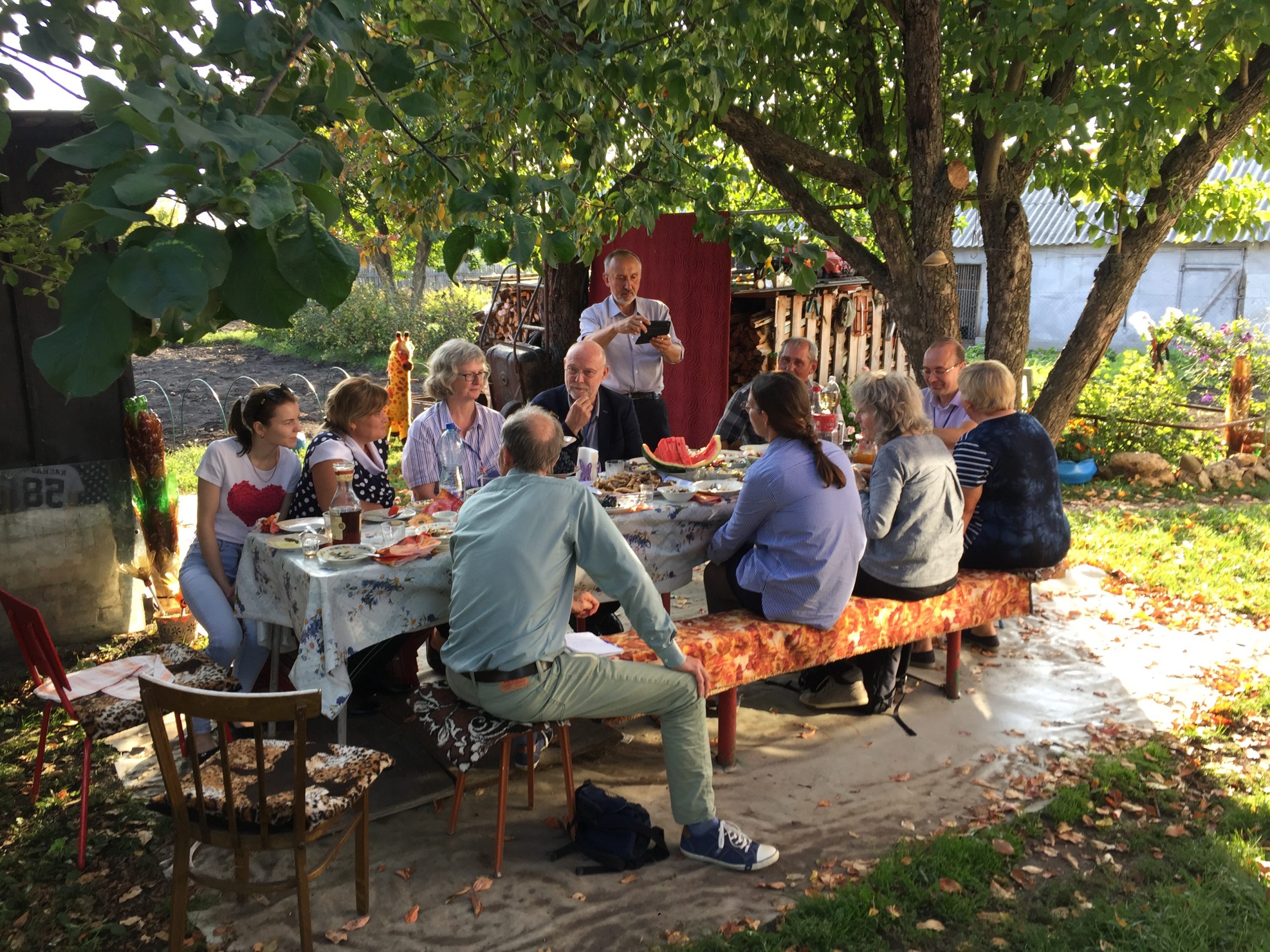
How in the world did I get to Kalinino?
So how in the world did I get to Kalinino? You may ask which one, since it turns out there are lots of them across Russia. The one I visited is a tiny village of only around 100 inhabitants, near Kaminka town in Russia’s Penza region.
It all started with my grandfather Anatole who was a governor in the city of Penza around the turn of the 20th century, in the time of Tsar Nicholas II. After the Iron Curtain fell in the 1990s, my brother and I visited Penza to reconnect with the past.
After we returned from that trip, my brother, who was a medical doctor at the time, wanted to reconnect further. He launched a partnership between universities and hospitals in Penza and in his city of Flensburg, North Germany. For the past 10 years, the two cities have held annual academic, public health and public education conferences.
Like my brother, I have found my connection to the Penza region growing stronger. In autumn 2019 I was part of a delegation to an agriculture conference in Penza, where I gave a lecture about transition opportunities towards organic farming, agroecology and how Russia could contribute to mitigate climate change. Quite a novelty for me, and perhaps also for the students and academics in the audience.
The conference had an intensive program. Some of the participants wanted to get out and see rural Russia.
We were lucky. Sergei Vasin, Vice-Rector for International Affairs at Penza State University (who is now Director for Research and Innovation) invited us to visit the surrounding region. And here is where the real adventure started. What mattered to us, curious visitors from Western Europe, was what Russian village life looked and felt like. Sergei invited us to see his friends.
This is how I got to Kalinino, formerly a state farm (sovkhoz) named after Kalinin, a revolutionary leader of the former Soviet Union. To us the name sounded like the favorite grandchild of an Italian mamouchka. Or, at least this is how we felt embraced by the welcome in this large garden. Lyuba and Alexander I, the elder couple, and Larisa and Alexander II, the younger couple, along with their daughter Irina, showed us around.

A taste of Russian hospitality
On the day we visited Kalinino, much had already been harvested, but tomatoes, peppers, pumpkins and some varieties of cabbage were still spread over the plots. Raisins, blackberries, apples, pears still waiting for conservation for a long winter. Chicken and goats, ducks, rabbits, pigs – kept in different hocks and sheds, even a cow further down grazing on common land were part of the team.
I can say for sure that we all shared that joy, tasting the vegetable soup, pickled cucumbers, pumpkin juice and pie, roasted and smoked bacon, stuffed tomatoes and peppers, home-made wine and vodka with and without hot peppers, grilled chicken and many cakes and sweet treats.
All that with the spoken tradition that each dish “invites” hosts and guests to offer their toasts. And no, it was not too much, it did not seem that way. You stand up, you announce a good wish, you speak, you toast, you drink and you sit down — seemingly countless times, but full of humor and laughter. Besides, it was good exercise… That day we had an interpreter, but we would have been able to understand each other with hand gestures, or through spirits, smiles and cheers. In that moment there was no language barrier.
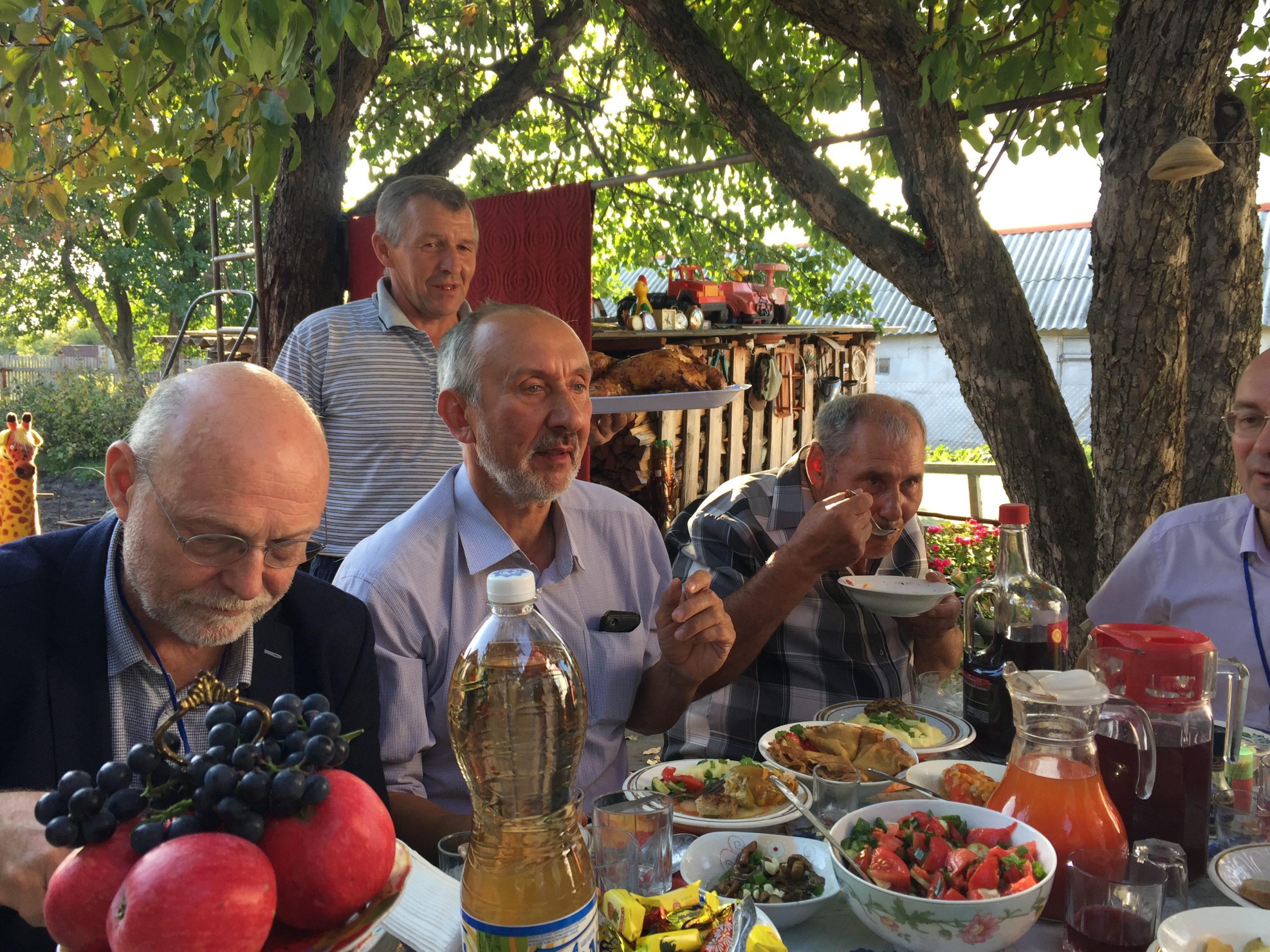
Size matters
During our visit to the Penza region we saw an impressive medium-sized sunflower oil mill, surrounded by sunflower fields as far as the eye could see. We visited a very large regional sugar beet factory, producing high quality sugar for food, technical purposes, and export.
The Penza region has fertile land and is home to approximately 1,700 highly productive, very large farm enterprises, formerly state-owned farms, which altogether occupy 319,000 hectares, for an average cultivated area of 490 hectares of each. Some are now managed by private owners and some by international consortia. Penza’s farming industry has also attracted international agri-food investors, for example the milk production complex Rusmolco, with 15,000 animals and 136,000 hectares of animal feed production.
They say size matters. At least that is what agricultural economists call a ‘comparative advantage’.
In Kalinino, believe it or not, each of the families own a garden of more or less 2,000 m², and have 6,000 m² for grazing their cattle and feed. 80% of their annual food they produce on the spot, including their own wine, spirits, eggs and meat. They keep their seeds and exchange them with other small farm gardeners, mainly for potatoes and vegetables. They have an old tractor from the former kolkhoz and a wide range of small equipment which they adapt and maintain themselves. Their children work in nearby Kamenka town and have jobs there. But of course they are happy to get some of their parents’ food from Kalinino’s gardens.
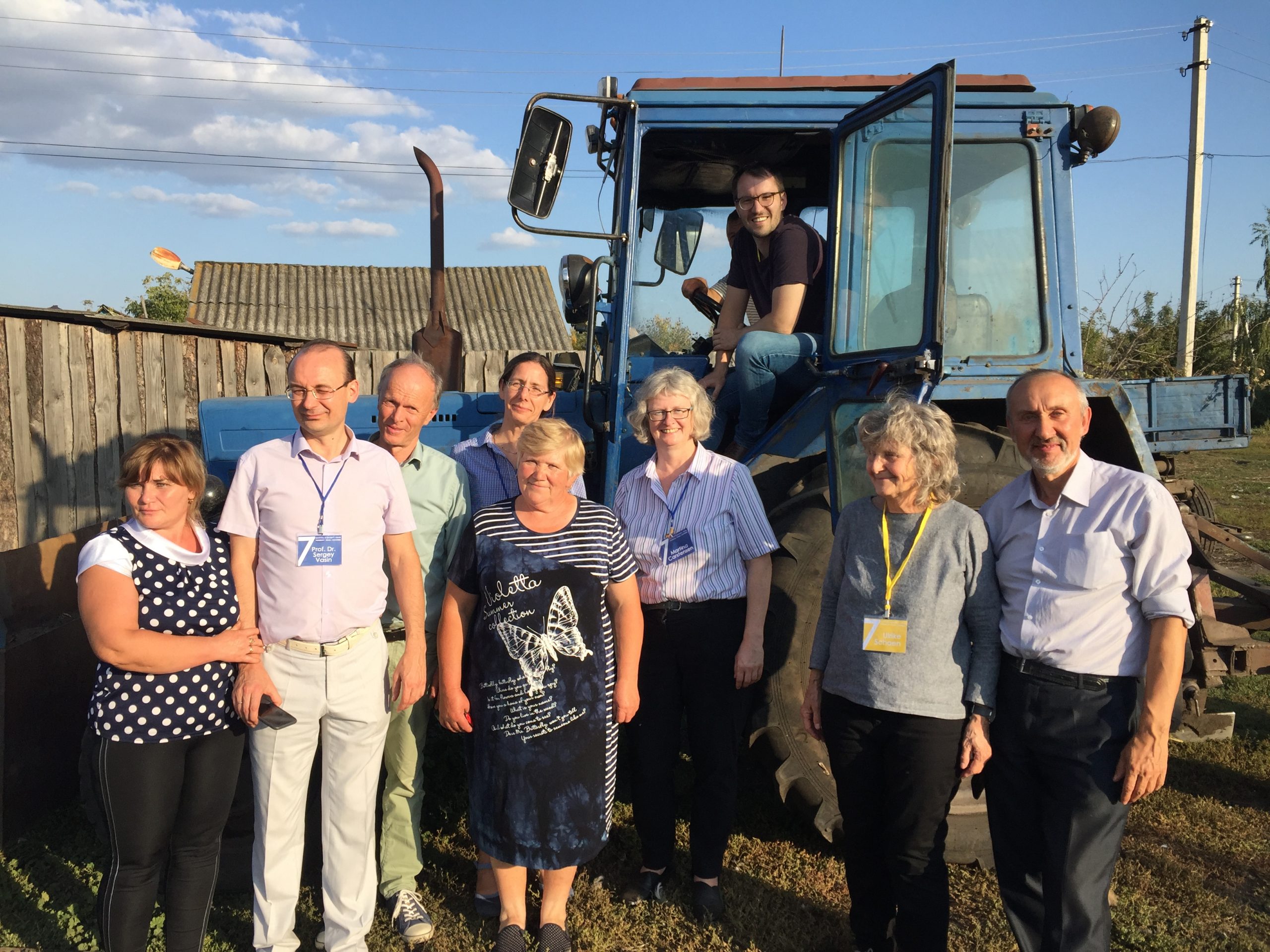
No market for very good local food
“The problem for villages like Kalinino is that there is no market for the very good local food,” says Sergei. “Given the low prices people pay at supermarkets, garden farmers cannot sell what they have on top. I believe it needs support and infrastructure from the state, so that they get a fair price. Perhaps then more young people would also stay here or come back. If it goes on like this many of our small villages will simply disappear.”
Doesn’t that sound familiar? Isn’t this what we keep saying to politicians a thousand kilometers further West? What about sharing good ideas and practices? What about checking how and where we can respond to the challenges of farming and good self-grown food for the future? One thing is for sure: in terms of hospitality, proud and joyful sharing, and toasting each other’s health, peace and friendship, Russian people are well ahead!
More on Russia
Moldova: East or West, Capitalism Defines its Socio-Economic Terrain


